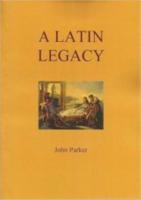
Cressar Publications (2015) 199pp £7.99 (ISBN 9780953539925)
One of the assumptions made about learning Latin is that, if nothing else, it will enable you to translate famous quotations and inscriptions on monuments in Roman sites, churches and elsewhere. In fact, the pithier the quotation, the denser, and the denser, the more difficult. Give a Latinate pupil, say, a posse ad esse (the motto of Pierrepoint School, Surrey) and (s)he will do well to come out with ‘by or from to be able to to be’ which may well leave no one any the wiser.
This is where John Parker’s little book gallops to the rescue. It not only translates the Latin but also explains where it comes from and how it means what it means, word by word. In this case, we are dealing with infinitives as gerunds, i.e. nouns, and the educational sentiment boils down to ‘from potential to the real thing’. Further, P. illustrates it with an apt quotation from P.J. Dorricot’s Beyond the Nursery Slopes : ‘Even before puberty Martin had known that deep within him were the makings of a great lover … Samantha’s initial response to his tentative but markedly amorous advances seemed to hold out hope of proceeding shortly a posse ad esse.’ Strikingly appropriate, and so one should hope: P. drily reveals that P.J. Dorricot is a pseudonym of the author, whose referenced works ‘have not so far been published (or even completed)’.
This is typical of the relaxed and relaxing tone of the whole book. Divided into four sections by alphabet and length of quotation (three, four, five and more words), it makes a charming vade mecum, leading the reader off from the quotations into all sorts of unexpected highways and byways. Juvenal, who (P. comments) knew nothing of Australia, likens a chaste wife to a rara avis in terris, nigroque simillima cycno; P. cites a passage from the Independent about Lorenzo the Magnificent—‘a rara avis, a Jewish Catholic priest with a wife and children’. Tempora mutantur, nos et mutamur in illis reminds P. of Jeeves’ reply to Wooster’s observation that in Queen Victoria’s days a girl would never have dreamed of mentioning livers in mixed company. Horace’s vitae summa brevis spem nos vetat incohare longam recalls Dowson’s ‘They are not long, the weeping and the laughter’. The 216 (Bomber Transport) squadron of the RAF has the motto CCXVI dona ferens. A.E. Housman reckoned criticus nascitur, non fit, just like the poeta.
Some 270 quotations are dealt with in this inexpensive, delightful volume. Strongly recommended.
Peter Jones
